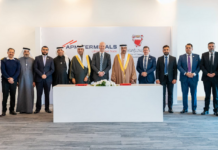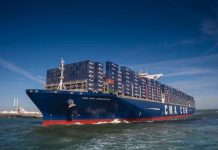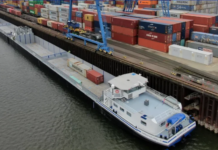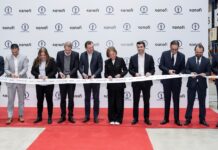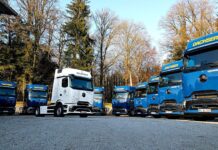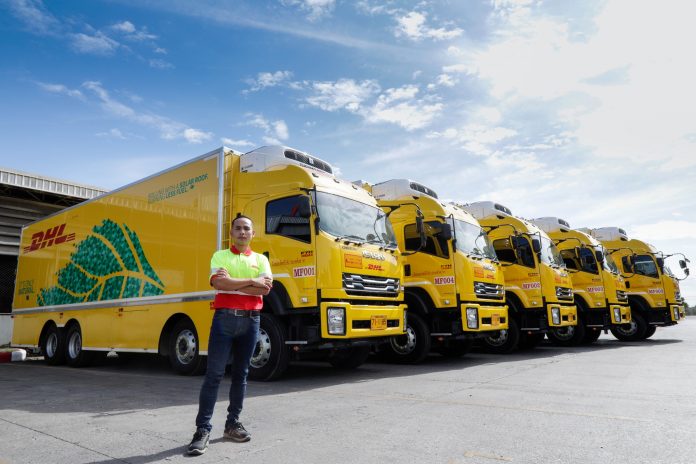
DHL Supply Chain (“DHL”), the world’s leading contract logistics provider, has rolled out a new fleet of temperature-controlled trucks in Thailand, powered by TRAiLAR technology, an eco-friendly solar-powered solution that reduces fuel use, carbon emissions and maintenance costs. The trucks offer two types of temperature control, and each of them can transport up to 12,500 kilograms of frozen and chilled products such as meat and vegetables. The addition of these temperature-controlled trucks means DHL now operates over 40 of these TRAiLAR trucks in the country, all fitted with ultra-thin solar mats to their roofs and connected to a smart charge control.
“Investing in industry-leading transport technology reflects our commitment to offering a best-in-class sustainable fleet solution to meet our customer’s changing business priorities. This latest addition to our fleet ensures that we can achieve better performance on the road while also making a significant contribution to lowering our carbon footprint,” said Steve Walker, CEO, DHL Supply Chain Thailand Cluster (Thailand, Vietnam, Cambodia, and Myanmar)
The introduction of these vehicles is the latest initiative to achieve net-zero logistics-related carbon emissions, aligned to its Environment and Social, Governance (ESG) goals. DHL has also retrofitted its largest multi-user warehouse, Bangna Logistics Campus, with solar rooftop panels, motion sensor LED lights, solar panel lights and waste management features.
In addition to environmental benefits, DHL Supply Chain’s new Multi-Temperature trucks help to improve road safety and fleet management.
- Environment: Each vehicle is equipped with thin-film solar mats fitted to vehicle roofs and connected to the vehicle’s battery or additional on-board batteries, allowing about a 15 per cent reduction in carbon emissions. DHL Supply Chain is the first logistics company in Thailand to equip vehicles with this cutting-edge technology. In addition, biofuels burn cleaner than gasoline and, as a result, emit lesser greenhouse gases.
- Social: Driver’s safety is enhanced by an in-vehicle camera to monitor their behavior and prevent operational hazards such as fatigue (e.g. yawning and distraction). Haptic and voice notifications will be activated to caution drivers if they exhibit these behaviors when they move at more than 10km per hour.
- Governance: Telematics enables customers to monitor real-time locations and vehicles behavior to ensure compliance with road traffic laws. It can also optimize routes to help save fuel and streamline transportation costs.
DHL has committed to reducing all logistics-related emissions by 2050 and recently announced that globally EUR 7 billion (THB 262 billion) is being invested over the next ten years in measures to achieve climate-neutral logistics solutions, with funds being used for alternative aviation fuels, the expansion of the zero-emission e-vehicle fleet, and operating climate-neutral buildings.
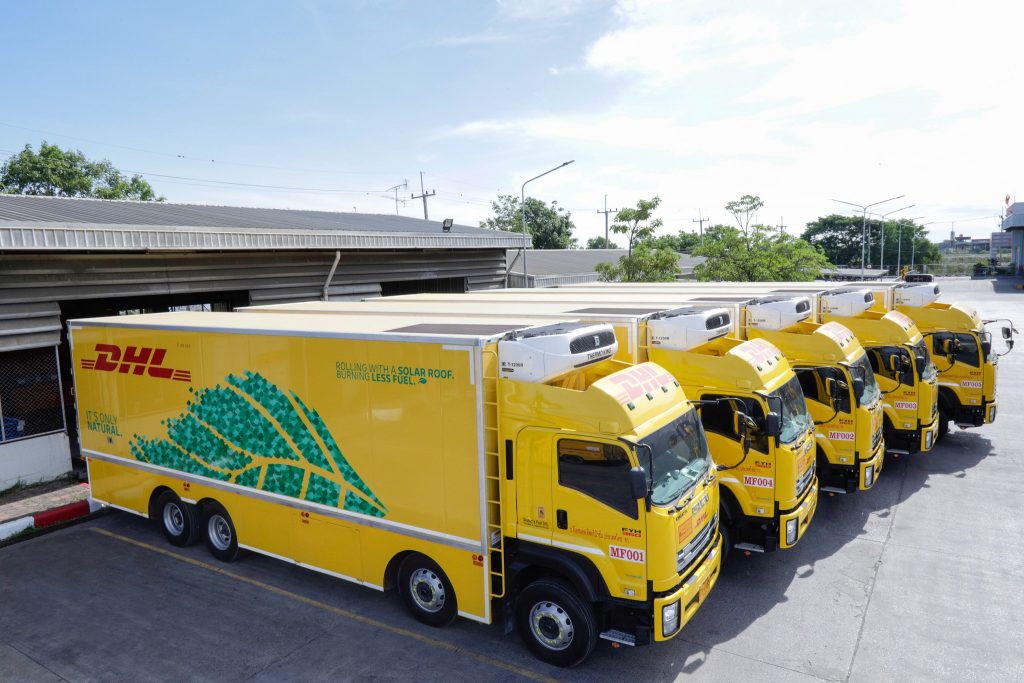
อัพเดตข่าวสารและบทความที่น่าสนใจในอุตสาหกรรมโลจิสติกส์ก่อนใคร ผ่าน Line Official Account @Logistics Mananger เพียงเพิ่มเราเป็นเพื่อน @Logistics Manager หรือคลิกที่นี่



